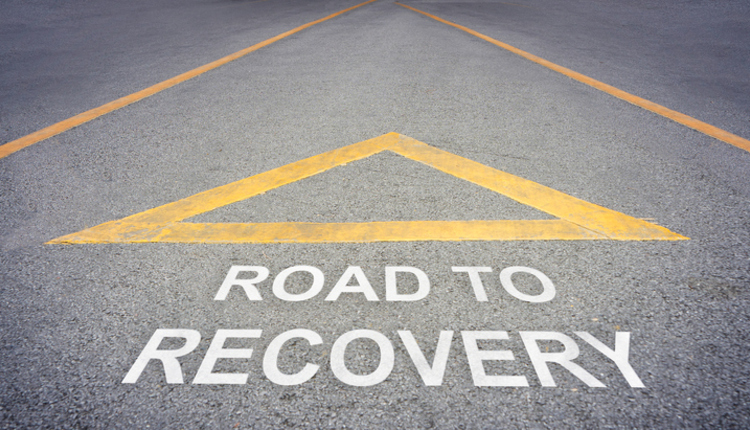
With a drug epidemic at an all-time high, people struggling with addiction must seek proper recovery strategies in order to not only prevent them from relapsing, but also to build a positive and sustainable approach for living a successful life thereafter.
For me, exercise saved my life. I can honestly say I wouldn’t be where I am today if my cell mate had not forced me to start working out during my incarceration. I didn’t just do pushups, sit-ups and run and then all of a sudden I didn’t want to get high anymore. It was more than that…
Exercise allowed me to get uncomfortable and believe in myself. To do things I never thought I could accomplish and see progress in my life. When I entered jail, I couldn’t run a mile or do a single pushup even from my knees!
It allowed me to also quit smoking cigarettes, build self-confidence and find purpose and meaning in life-something that is crucial in maintaining a fulfilling recovery. It also taught me to be dedicated to something and have routine, which I think is the main reason I could finally hold a job after I got out of jail.
Commitment is everything in recovery. I learned commitment, dedication and the importance of believing in yourself. Many addicts never think they are going to make it. They have absolutely no hope that their lives will be better than it is today. This hopelessness becomes a roadblock in their motivation to change. Exercising, for me and many others, was and is a stepping stone to accomplish things and to be able to know that things take time and the importance of commitment.
This isn’t just true for me. Look at the number of people who commit to living a healthy lifestyle. They end up also quitting smoking, surrounding themselves with new like-minded people and changing their lives for the good.
After seeing the successful role fitness has played not only in my recovery I collaborated with the Maryland Addiction Recovery Center in Towson, MD and we established a fitness program for patients.
What we like most about the fitness program is that the patients tend to take their fitness habits outside of the classes and workout on their own, showing their commitment to their health and wellness. The classes are a mandatory part of their therapy as the owners understand the importance of exercise during the early stages of recovery.
Training people struggling with addiction can be very fulfilling, uplifting and purposeful. We really can change not only one person’s life, but their family life as well. You must be patient, understanding and most importantly, relatable. Many people struggling with addiction or in early recovery are emotionally unstable. Many have experienced trauma, grief and deep sadness. A trainer must be able to have compassion and relate to where they are in their lives.
Addiction can wreak havoc on the body. It harms the biological system that brings oxygen to the brain and blood to the heart. We must first restore the body to its natural state. Exercise releases endorphins that boost positive feelings and affect one’s overall health. Exercise can also help facilitate change as it improves the mental health of the brain by reducing stress and acting as a go-to coping mechanism to replace the drugs and alcohol that were used previously.
Whether someone is addicted to drugs, sex, alcohol, gambling or anything else, the euphoric feeling is the same. Designing a program for someone addicted to alcohol isn’t any different than for someone addicted to heroin. Many times, the reason people turn to drugs or alcohol in the first place is due to mental issues that existed long before the drugs came into play. Maybe they were insecure with how they looked, so they chose to drink to mask the feeling. Or maybe they knew they would never look a certain way, so they chose heroin to hide shame or jealousy. We must dig deep into their hearts and find out why their fitness program is important to them and their recovery, just like any other client.
For clients in recovery, we must choose program elements that align with their goals. If they want to lose weight, train them to lose weight. If they want to build muscle, design a strength program for them. Setting goals with health and wellness correlates with the rest of these clients’ lives. Set goals for their health. Set goals for their recovery. Set goals their lives. All these things are related and absolutely non-negotiable.
These clients, like all others, must find a program that they enjoy. Because if they enjoy it, they will want to keep doing it. This is not to say they shouldn’t get out of their comfort zones, but if they love yoga, they should yoga…if they love to lift weights, then they should lift weights.
Sure, we can break it down and say that if you preferred “upper” drugs such as cocaine, crack or amphetamines then workouts that get your heart rate pumping will best suit you or that if you preferred downers such as xanax, painkillers or heroin that you would prefer workouts that calm you down such as Pilates or yoga. But this is not always the case. I loved the “downers,” but I love lifting weights and running, and have a hard time with yoga.
Exercising forces us to get uncomfortable. To do things that are new and challenging and sometimes nerve-wracking. It forces us to push through our limits and gain strength and vitality-- things that in recovery we truly need. We need to make sure our clients struggling with addiction understand that being uncomfortable is a good thing.
It’s uncomfortable being sober, hanging around new people and finding new things to be passionate about. Being uncomfortable is something that is relatable in all walks of life, and the more we practice it, the better we get at it and the more we grow personally, professionally and spiritually.
This is why we must inspire clients in recovery to dig deep, focus on the bigger picture and remember how far they have come and not how far they have to go. Setting small goals with them to lead to the bigger goal. People going through addiction struggles can often beat themselves up, and are quick to give excuses and give up, so we must continue to genuinely hold them accountable.
It is our job as fitness professionals to keep them focused on their goals and help keep them motivated to achieve their goals. Keeping focused is a challenge for this population, so it’s very important to have certain goal setting worksheets and check-ins to help them along the way. But, it’s also important to know our boundaries and know when the right time is to outsource to local therapists, treatment centers or other mental health and addiction specialists.
Community is also something that exercise can help build; a community of healthy, like-minded and driven people looking to better their lives. Training these clients in groups is a great approach as it establishes comradery and allows members of the group to hold each other accountable and develop positive relationships. They push each other, lift each other up and help to keep everyone moving.
One thing we must be mindful of as well is exercise addiction and when is too much, too much.
Craving that drink, drug or sex is similar to that feeling you get after a great workout. You start to crave it. Want it. Obsess over it. We must be mindful of when people are overdoing it in a way that it is causing harm to their bodies or their life in a negative way. Be aware of eating disorders, overtraining and burnout and know when to outsource to the proper help when needed. Again, it is not our job to diagnose anything, just to be mindful and establish relationships with people who can.
With drug overdoses at an all-time high, we must take a stand as fitness professionals to do what we can to help people funnel their energy into positive things than can have lasting impact and change their lives.










